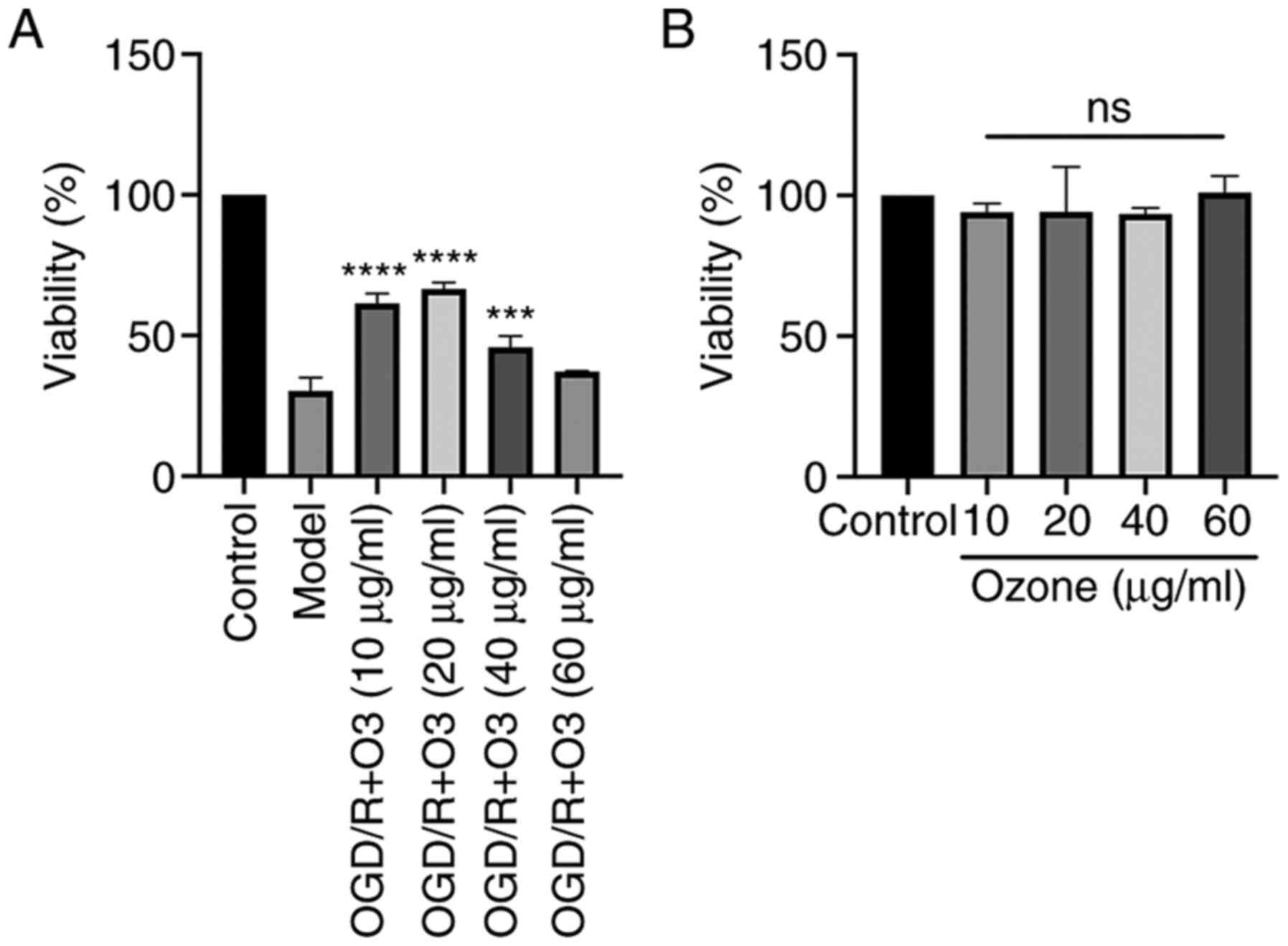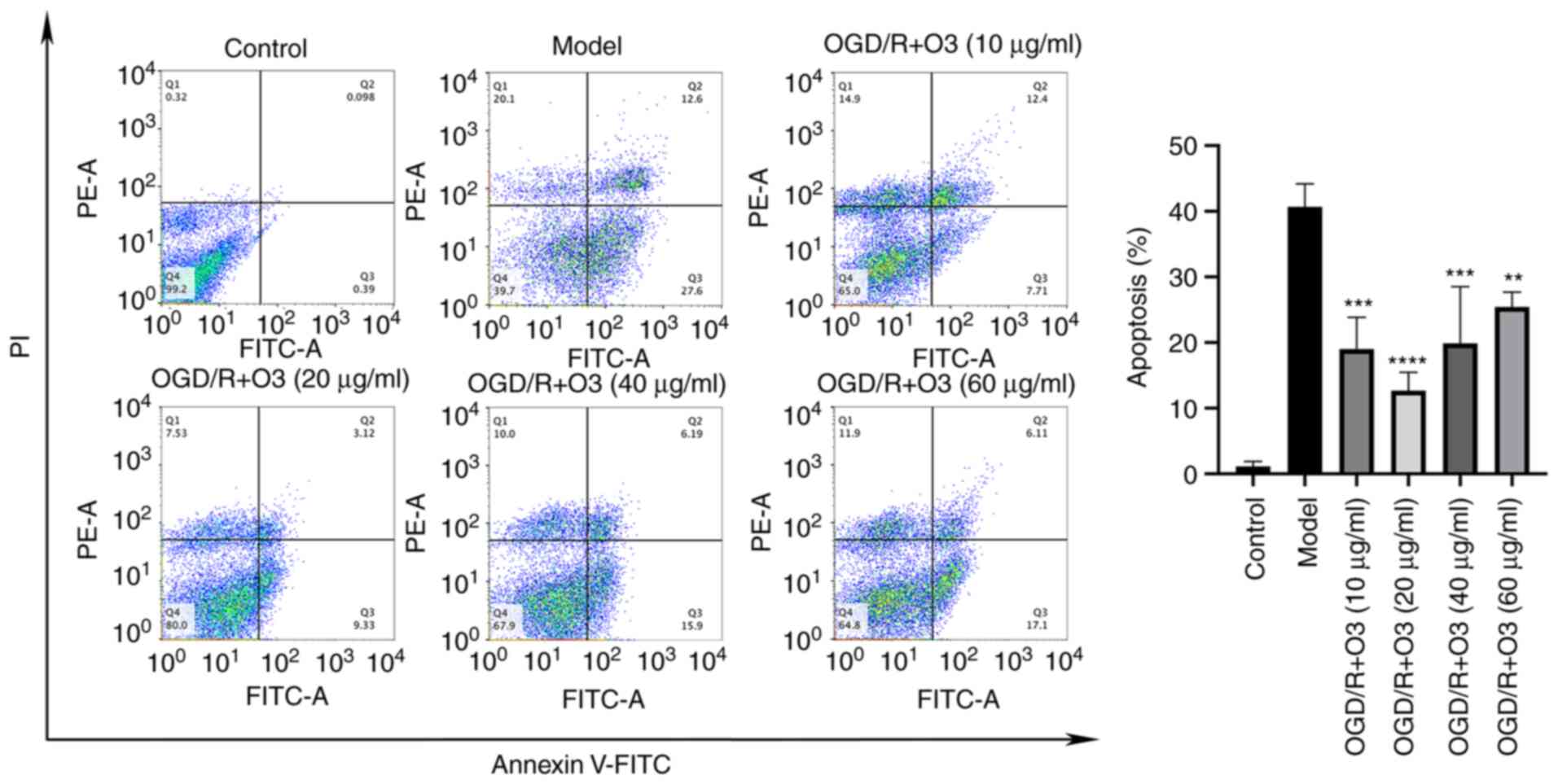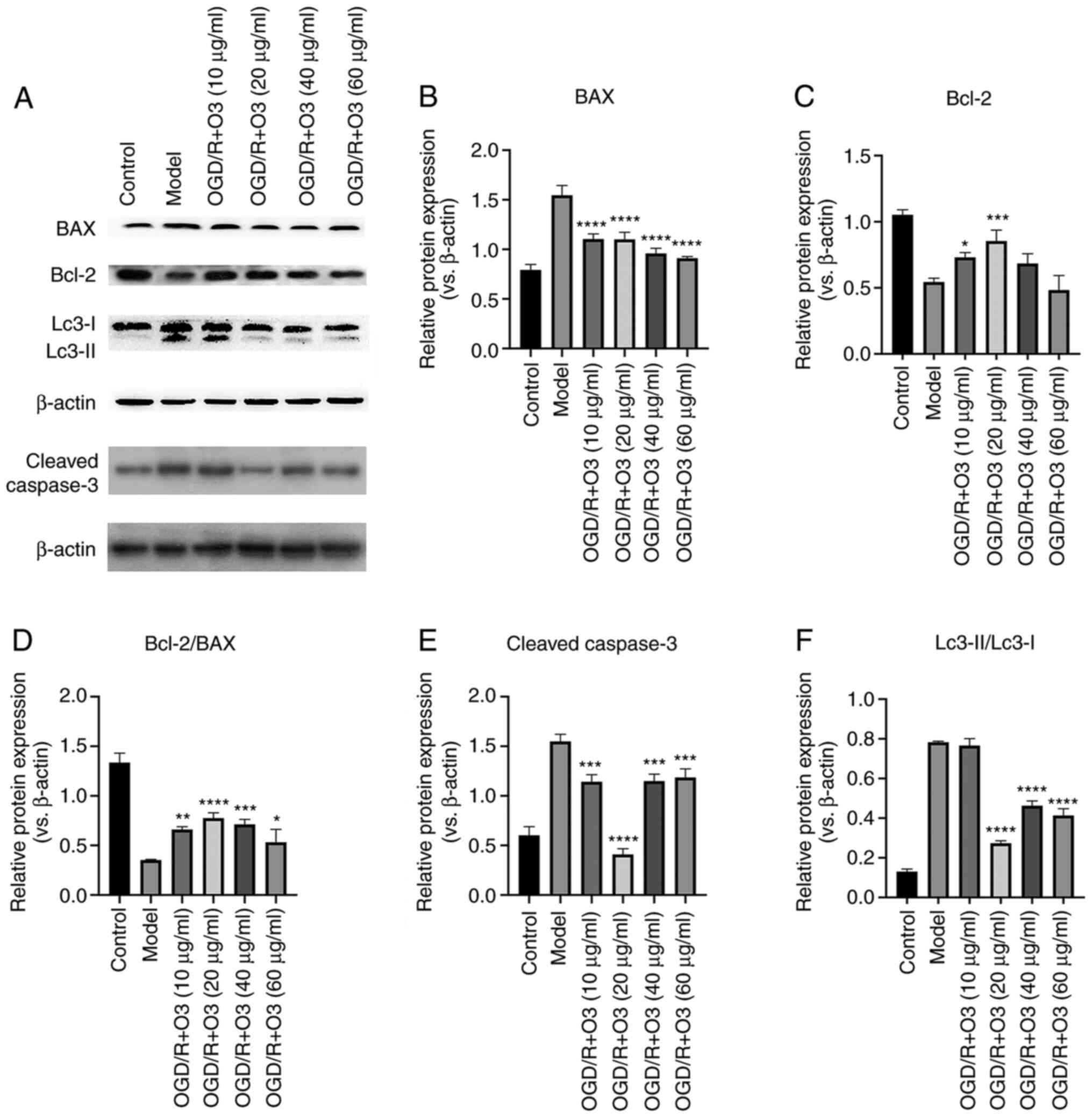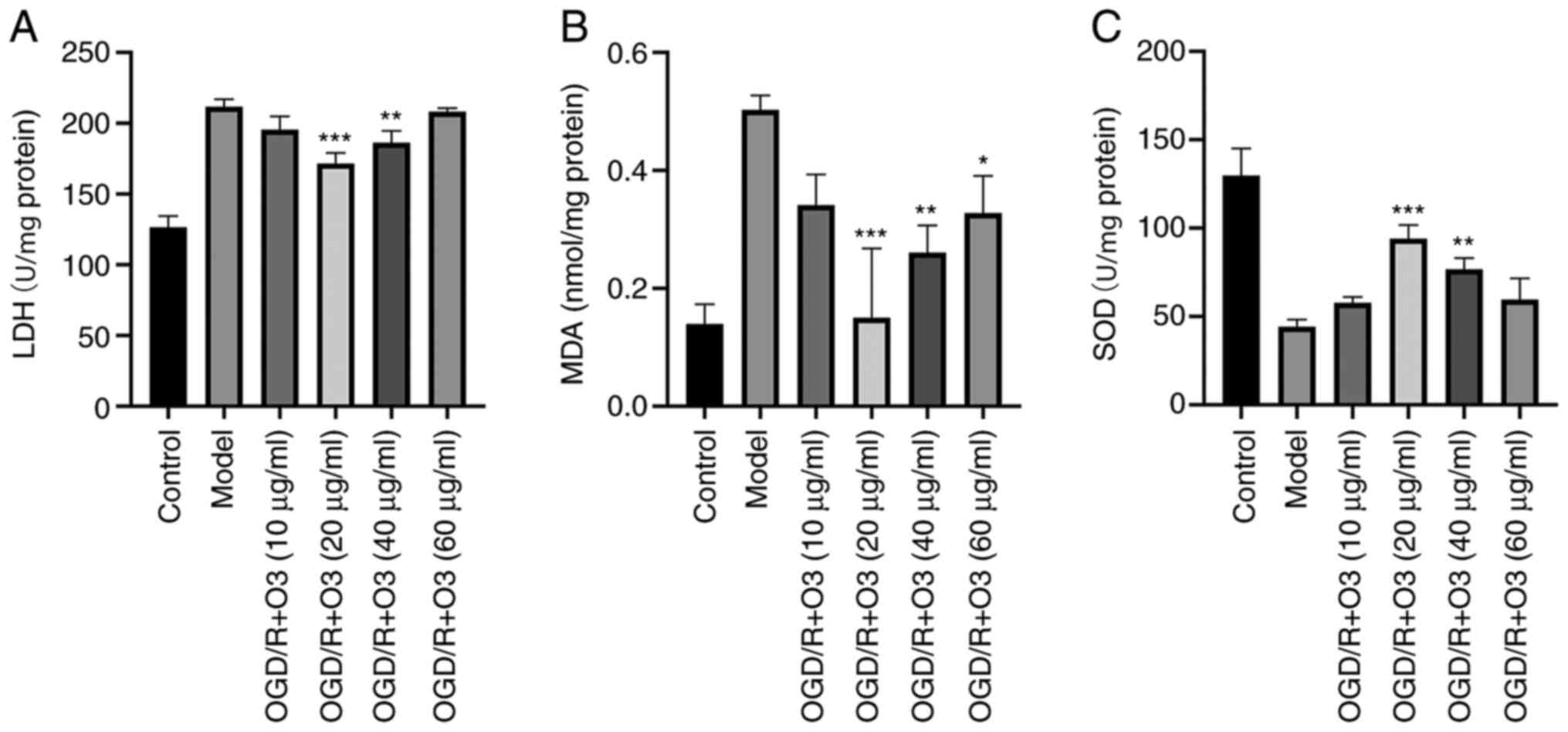|
1
|
Granger DN and Kvietys PR: Reperfusion
injury and reactive oxygen species: The evolution of a concept.
Redox Biol. 6:524–551. 2015.PubMed/NCBI View Article : Google Scholar
|
|
2
|
Huang L, Guo B, Liu S, Miao C and Li Y:
Inhibition of the LncRNA Gpr19 attenuates ischemia-reperfusion
injury after acute myocardial infarction by inhibiting apoptosis
and oxidative stress via the miR-324-5p/Mtfr1 axis. IUBMB Life.
72:373–383. 2020.PubMed/NCBI View
Article : Google Scholar
|
|
3
|
Kuma A, Hatano M, Matsui M, Yamamoto A,
Nakaya H, Yoshimori T, Ohsumi Y, Tokuhisa T and Mizushima N: The
role of autophagy during the early neonatal starvation period.
Nature. 432:1032–1036. 2004.PubMed/NCBI View Article : Google Scholar
|
|
4
|
Gurusamy N, Lekli I, Gorbunov NV,
Gherghiceanu M, Popescu LM and Das DK: Cardioprotection by
adaptation to ischaemia augments autophagy in association with
BAG-1 protein. J Cell Mol Med. 13:373–387. 2009.PubMed/NCBI View Article : Google Scholar
|
|
5
|
Wu ZQ, Cui SY, Zhu L and Zou ZQ: Study on
the Mechanism of mTOR-Mediated Autophagy during Electroacupuncture
Pretreatment against Cerebral Ischemic Injury. Evid Based
Complement Alternat Med. 2016(9121597)2016.PubMed/NCBI View Article : Google Scholar
|
|
6
|
Gurusamy N, Lekli I, Mukherjee S, Ray D,
Ahsan MK, Gherghiceanu M, Popescu LM and Das DK: Cardioprotection
by resveratrol: A novel mechanism via autophagy involving the
mTORC2 pathway. Cardiovasc Res. 86:103–112. 2010.PubMed/NCBI View Article : Google Scholar
|
|
7
|
Matsui Y, Kyoi S, Takagi H, Hsu CP,
Hariharan N, Ago T, Vatner SF and Sadoshima J: Molecular mechanisms
and physiological significance of autophagy during myocardial
ischemia and reperfusion. Autophagy. 4:409–415. 2008.PubMed/NCBI View Article : Google Scholar
|
|
8
|
Elvis AM and Ekta JS: Ozone therapy: A
clinical review. J Nat Sci Biol Med. 2:66–70. 2011.PubMed/NCBI View Article : Google Scholar
|
|
9
|
Ahmed LA, Salem HA, Mawsouf MN, Attia AS
and Agha AM: Cardioprotective effects of ozone oxidative
preconditioning in an in vivo model of ischemia/reperfusion injury
in rats. Scand J Clin Lab Invest. 72:345–354. 2012.PubMed/NCBI View Article : Google Scholar
|
|
10
|
Merin O, Attias E, Elstein D, Schwalb H,
Bitran D, Zimran A and Silberman S: Ozone administration reduces
reperfusion injury in an isolated rat heart model. J Card Surg.
22:339–342. 2007.PubMed/NCBI View Article : Google Scholar
|
|
11
|
Di Filippo C, Marfella R, Capodanno P,
Ferraraccio F, Coppola L, Luongo M, Mascolo L, Luongo C, Capuano A,
Rossi F, et al: Acute oxygen-ozone administration to rats protects
the heart from ischemia reperfusion infarct. Inflamm Res.
57:445–449. 2008.PubMed/NCBI View Article : Google Scholar
|
|
12
|
Tylicki L, Nieweglowski T, Biedunkiewicz
B, Chamienia A, Debska-Slizien A, Aleksandrowicz E,
Lysiak-Szydlowska W and Rutkowski B: The influence of ozonated
autohemotherapy on oxidative stress in hemodialyzed patients with
atherosclerotic ischemia of lower limbs. Int J Artif Organs.
26:297–303. 2003.PubMed/NCBI View Article : Google Scholar
|
|
13
|
Foglieni C, Fulgenzi A, Belloni D,
Sciorati C, Ferrero E and Ferrero ME: Ozonated autohemotherapy:
Protection of kidneys from ischemia in rats subjected to unilateral
nephrectomy. BMC Nephrol. 12(61)2011.PubMed/NCBI View Article : Google Scholar
|
|
14
|
Filomeni G, Desideri E, Cardaci S, Rotilio
G and Ciriolo MR: Under the ROS…thiol network is the principal
suspect for autophagy commitment. Autophagy. 6:999–1005.
2010.PubMed/NCBI View Article : Google Scholar
|
|
15
|
Al-Salam S and Hashmi S: Myocardial
Ischemia Reperfusion Injury: Apoptotic, Inflammatory and Oxidative
Stress Role of Galectin-3. Cell Physiol Biochem. 50:1123–1139.
2018.PubMed/NCBI View Article : Google Scholar
|
|
16
|
Chen Y, Azad MB and Gibson SB: Superoxide
is the major reactive oxygen species regulating autophagy. Cell
Death Differ. 16:1040–1052. 2009.PubMed/NCBI View Article : Google Scholar
|
|
17
|
Gustafsson AB and Gottlieb RA: Eat your
heart out: Role of autophagy in myocardial ischemia/reperfusion.
Autophagy. 4:416–421. 2008.PubMed/NCBI View Article : Google Scholar
|
|
18
|
Kroemer G, Mariño G and Levine B:
Autophagy and the integrated stress response. Mol Cell. 40:280–293.
2010.PubMed/NCBI View Article : Google Scholar
|
|
19
|
Chen J, Jiang Z, Zhou X, Sun X, Cao J, Liu
Y and Wang X: Dexmedetomidine Preconditioning Protects
Cardiomyocytes Against Hypoxia/Reoxygenation-Induced Necroptosis by
Inhibiting HMGB1-Mediated Inflammation. Cardiovasc Drugs Ther.
33:45–54. 2019.PubMed/NCBI View Article : Google Scholar
|
|
20
|
El-Sawalhi MM, Darwish HA, Mausouf MN and
Shaheen AA: Modulation of age-related changes in oxidative stress
markers and energy status in the rat heart and hippocampus: A
significant role for ozone therapy. Cell Biochem Funct. 31:518–525.
2013.PubMed/NCBI View
Article : Google Scholar
|
|
21
|
Buyuklu M, Kandemir FM, Set T, Bakırcı EM,
Degirmenci H, Hamur H, Topal E, Kucukler S and Turkmen K:
Beneficial Effects of Ozone Therapy on Oxidative Stress, Cardiac
Functions and Clinical Findings in Patients with Heart Failure
Reduced Ejection Fraction. Cardiovasc Toxicol. 17:426–433.
2017.PubMed/NCBI View Article : Google Scholar
|
|
22
|
Li Y, Xia J, Jiang N, Xian Y, Ju H, Wei Y
and Zhang X: Corin protects H2O2-induced
apoptosis through PI3K/AKT and NF-κB pathway in cardiomyocytes.
Biomed Pharmacother. 97:594–599. 2018.PubMed/NCBI View Article : Google Scholar
|
|
23
|
Sagai M and Bocci V: Mechanisms of Action
Involved in Ozone Therapy: Is healing induced via a mild oxidative
stress? Med Gas Res. 1(29)2011.PubMed/NCBI View Article : Google Scholar
|
|
24
|
Zhu L, Hao J, Cheng M, Zhang C, Huo C, Liu
Y, Du W and Zhang X: Hyperglycemia-induced Bcl-2/Bax-mediated
apoptosis of Schwann cells via mTORC1/S6K1 inhibition in diabetic
peripheral neuropathy. Exp Cell Res. 367:186–195. 2018.PubMed/NCBI View Article : Google Scholar
|
|
25
|
Cai HA, Tao X, Zheng LJ, Huang L, Peng Y,
Liao RY and Zhu YM: Ozone alleviates ischemia-reperfusion injury by
inhibiting mitochondrion-mediated apoptosis pathway in SH-SY5Y
cells. Cell Biol Int. 44:975–984. 2020.PubMed/NCBI View Article : Google Scholar
|
|
26
|
Filomeni G, De Zio D and Cecconi F:
Oxidative stress and autophagy: The clash between damage and
metabolic needs. Cell Death Differ. 22:377–388. 2015.PubMed/NCBI View Article : Google Scholar
|
|
27
|
Du J, Li Y and Zhao W: Autophagy and
myocardial ischemia. In: Autophagy: Biology and Diseases. Le W
(ed). Springer, Singapore. Adv Exp Med Biol. 1207:217–222.
2020.
|
|
28
|
Shi B, Ma M, Zheng Y, Pan Y and Lin X:
mTOR and Beclin1: Two key autophagy-related molecules and their
roles in myocardial ischemia/reperfusion injury. J Cell Physiol.
234:12562–12568. 2019.PubMed/NCBI View Article : Google Scholar
|
|
29
|
Galluzzi L and Green DR:
Autophagy-Independent Functions of the Autophagy Machinery. Cell.
177:1682–1699. 2019.PubMed/NCBI View Article : Google Scholar
|
|
30
|
Pattingre S, Tassa A, Qu X, Garuti R,
Liang XH, Mizushima N, Packer M, Schneider MD and Levine B: Bcl-2
antiapoptotic proteins inhibit Beclin 1-dependent autophagy. Cell.
122:927–939. 2005.PubMed/NCBI View Article : Google Scholar
|
|
31
|
Kurian GA, Rajagopal R, Vedantham S and
Rajesh M: The Role of Oxidative Stress in Myocardial Ischemia and
Reperfusion Injury and Remodeling: Revisited. Oxid Med Cell Longev.
2016(1656450)2016.PubMed/NCBI View Article : Google Scholar
|
|
32
|
Sinha N and Dabla PK: Oxidative stress and
antioxidants in hypertension-a current review. Curr Hypertens Rev.
11:132–142. 2015.PubMed/NCBI View Article : Google Scholar
|
|
33
|
Yang F, Pei R, Zhang Z, Liao J, Yu W, Qiao
N, Han Q, Li Y, Hu L, Guo J, et al: Copper induces oxidative stress
and apoptosis through mitochondria-mediated pathway in chicken
hepatocytes. Toxicol In Vitro. 54:310–316. 2019.PubMed/NCBI View Article : Google Scholar
|
|
34
|
Huang Z, Ji H, Shi J, Zhu X and Zhi Z:
Engeletin Attenuates Aβ1-42-Induced Oxidative Stress and
Neuroinflammation by Keap1/Nrf2 Pathway. Inflammation.
43:1759–1771. 2020.PubMed/NCBI View Article : Google Scholar
|




















